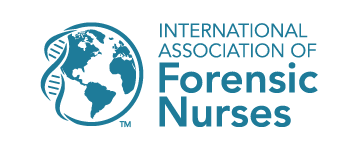Become a Forensic Nurse
Overview
The path to becoming a Forensic Nurse will vary. In the US, most registered nurses find success in starting as a Sexual Assault Nurse Examiner, or SANE. To become a SANE, registered nurses must take a Sexual Assault Examiner Class comprised of 40 hours of classroom training, followed by an average of 40 hours of clinical training. IAFN has Educational Guidelines that recommend this training as a minimum starting point for SANEs.
Some communities also use registered nurses as Coroners or Death Investigators. Before taking a Death Investigator Course, a registered nurse should investigate whether their local community hires nurses as death investigators. If not, that nurse might need to be a trailblazer and advocate for her or himself to be hired in such a position.
Another option is to get a Masters degree or PhD in forensic nursing. However, an advanced degree does not guarantee a job.
Is Forensic Nursing Really for me?
- Do you already have a good balance in life and work? Review our infographic and learn more about vicarious trauma.
- Does your family/significant others support you in your choice? Sometimes we forget that we take our families with us in whatever career path we choose. Peek into the world of Forensic Nursing with this video documentary.
- Are you going to be in a service that supports your work? Is education ongoing, is the program supportive of the examiners? Would you be asked to do volunteer work, ex: no pay for on call, no educational fund, long on call schedules.
- Have you talked to other examiners where you intend to work? Ask them to be honest about what your expectations are and the reality of the work from their perspective. The work is much different than what most non forensic folks think.
Training and Education in Forensic Nursing
The most comprehensive listing of trainings can be found on our Education page. IAFN hosts live (in-person) trainings and webinars, and also offers a list of trainings offered in local communities around the world. IAFN does not promote or endorse any of these outside, non-IAFN sponsored trainings.
IAFN approved courses are listed here. Potential students should investigate their options and then directly contact the schools in which they are interested. Potential students will want to consider whether a certificate course or an advanced degree will better meet their career or educational objectives. Students will also want to look into any requirements that their state’s Board of Nursing or similar organization might place on a forensic nurse.
Networking with others who are currently working in the field may help to provide an idea of the education requirements in each community. Consider joining IAFN to take advantage of numerous members-only benefits, including networking opportunities, discussion forums, career resources, and access to the Journal of Forensic Nursing.
Certification in Forensic Nursing
The Board-Certification offered by IAFN is different than state credentialing or earning a ‘certificate’ at the end of an educational course. Although Board Certification is not a requirement to practice in most areas, getting certified signifies that a nurse is committed to professionalism and has the expert knowledge necessary to meet the highest standards of forensic nursing. Studies from the Institute of Medicine have demonstrated that specialty-certified nurses have higher rates of patient satisfaction, lower rates of work-related errors in patient care, and in some cases receive a higher salary or stipend for maintaining certification.
IAFN offers two certifications for the Sexual Assault Nurse Examiner (SANE). The SANE-A is specialized for Adults and Adolescents, and the SANE-P is specialized for pediatrics. To become certified, registered nurses must pass an examination. The exams are offered twice a year during the months of May and October, and may be taken at testing center sites across the US and internationally. In order to sit for the exam, candidates must first have been practicing RN for a minimum of 2 years and meet the other eligibility criteria determined by the Forensic Nursing Certification Board. For more information visit the IAFN Certification page.
As mentioned earlier, those looking to practice Forensic Nursing will want to make sure that the training they receive meets all of the requirements in their community. Requirements vary significantly, and a person should contact the organization in their state, province, or country that regulates the practice or licensure of nurses. In the US, this would be your State Board of Nursing.
